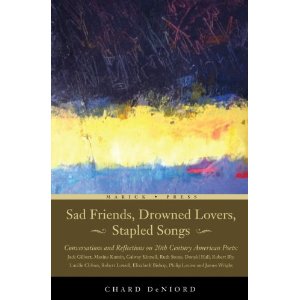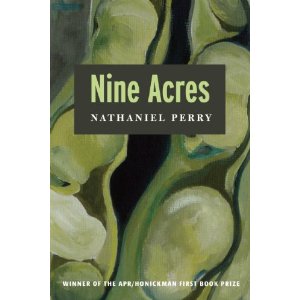Update: I recently learned the Jack Gilbert passed away Sunday, November 11. You can read more about that here.
I came across this set of interviews with Jack Gilbert today(April 23, 2012). He’s one of my favorite poets, and I’ve mentioned him on UnIambic several times. I love the simplicity, the sincerity of his poems. How he’s able to be completely at ease pouring out intense emotion without being sentimental or maudlin about it.
In the interview he discusses some of his apprehension with publishing, his disappointment with much of the contemporary po-biz and his poor outlook on the future of poetry. OK, some of that I agree with, but I also feel he shortchanges poets in a big way. Yes, there are the career-minded poets, the post-modern tricksters, the posers and all the rest: “Much of postmodern poetry has no significance at all.” But he overstates how much poetry or poets have changed, and underestimates the sincerity of many of today’s poets.
That’s not surprising really. For a large part of his adult life I believe Gilbert has lived a partial hermit’s life, if not physically (as in the years he spend on Greek islands) then mentally or emotionally. He’s a person who thrives on removing himself from the pressures of the rest of the world, while he focuses on the inner world.
He says: “I don’t believe people would continue to write poetry, most of them, if there was no money to be made in poetry.” Here I assume he’s referring to the career academicians and big prize money winners, yet how could he not realize that poetry is so much more than that. Look around here (the greater Philadelphia area). There are scads of poets, with no academic affiliations, working alone and together for just the pleasure of the poems themselves (see this recent Philly.com article on the scene.)
He also says some things in this interview which are a bit dishonest to himself. His comments on craft, for instance, he critiques the workshop experience here:
“Nobody wants to talk about how a poem works, what its purpose is. They all want to deal with the outside of the poem. Does it look good? Should I take the left line out and put it over here? How should I make the rhythm correct and such. But hardly anybody talks about the strategies of poetry, or how you make poetry live, how to use concrete detail rather than similes, goddamned similes, the weakest kind of resource there is in poetry. People are so much in love with similes. It’s a pity. The mechanics of poetry have little to do with design.”
Yet he came out of one of the most celebrated workshop programs (Iowa Writers’ Workshop). Speaking of similes here’s a couple of lines from one of my favorite Gilbert poems Finding Something
“The arches of her feet are like voices
of children calling in the groves of lemon trees
where my hart is as helpless as crushed birds.”
His craft is not the obvious, meticulously tinkered craft, but it’s a craft that shows he understands the workmanship of writing, the effort that goes into making something feel effortless.
Anyway, this interview, while illuminating, also makes me sad because I don’t feel poets and poetry warrant the negativity and pessimism he heaps upon them. I hope and believe he’s wrong.
The interview is from the book Sad Friends, Drowned Lovers, Stapled Songs which I’ve just added to my Amazon wish list.



